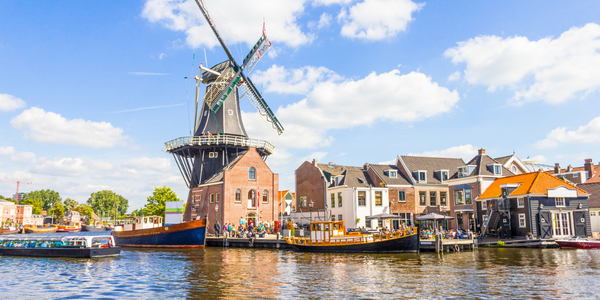
Technology Category
- Networks & Connectivity - 5G
- Networks & Connectivity - Cellular
Applicable Industries
- Automotive
- Cities & Municipalities
Applicable Functions
- Maintenance
Use Cases
- Smart Parking
- Vehicle-to-Infrastructure
Services
- Cloud Planning, Design & Implementation Services
- System Integration
The Customer
Motor City Wash Works
About The Customer
Motor City Wash Works is a leading global manufacturer of automated car washes. The company has been providing reliable car wash equipment, parts, and accessories since the early 2000s. It has a technology division known as Motor City Express, LLC. to support unique needs for managed IT services. The company offers a turn-key, as-a-service solution that includes everything from the car wash equipment to integrations with point-of-sale (POS) systems and security cameras. As part of this service, Motor City’s CruzControl cloud-based maintenance management platform streamlines operations by bolstering data visibility, analytics, and automation.
The Challenge
Motor City Wash Works, a leading global manufacturer of automated car washes, aimed to revolutionize the car wash industry with its end-to-end, as-a-service car wash technology system. However, the company faced significant challenges related to network connectivity. The system relied heavily on secure 24x7 network access for everything from machinery data to PCI compliant point-of-sale information. Any network downtime was costly and manual, making in-person troubleshooting unrealistic and inefficient. The company also faced issues with opening day delays for new installations, which resulted in significant revenue loss. Additionally, the company had to manage data from multiple sources, which was difficult to track through one platform. Lastly, the company needed to ensure the security of critical data, including customer payment information, while meeting PCI DSS standards.
The Solution
To address these challenges, Motor City operationalized its car wash infrastructure with end-to-end, cloud-controlled connectivity provided through Cradlepoint and Extreme Networks. At each car wash site, Extreme Networks connected all IP-enabled devices via switches and access points, with cloud control provided through the ExtremeCloud IQ platform. The system also used Cradlepoint’s NetCloud Service and cellular-enabled wireless edge routers for secure, reliable, and versatile Wireless WAN connectivity. Key data from each car wash facility was pushed through the LAN and WAN to the CruzControl datacenter, where Extreme’s headend equipment and Fabric Connect software expedited the rollout of flexible virtualized networks. Cellular and Wi-Fi status data were integrated into Motor City’s main data platform via APIs, fostering a single-pane-of-glass experience for each car wash’s administrative team.
Operational Impact
Quantitative Benefit

Case Study missing?
Start adding your own!
Register with your work email and create a new case study profile for your business.
Related Case Studies.

Case Study
Turning A Stadium Into A Smart Building
Honeywell created what it called the “intelligent system” for the National Stadium in Beijing, China, turning the venue for the opening and closing events at the 2008 Summer Olympics into a “smart building.” Designed by highly controversial artist Ai Weiwei, the “Bird’s Nest” remains one of the most impressive feats of stadium architecture in the world. The 250,000 square meter structure housed more than 100,000 athletes and spectators at a time. To accommodate such capacity, China turned to Honeywell’s EBI Integrated Building Management System to create an integrated “intelligent system” for improved building security, safety and energy efficiency.
.png)
Case Study
Smart Street Light Network (Copenhagen)
Key stakeholders are taking a comprehensive approach to rethinking smart city innovation. City leaders have collaborated through partnerships involving government, research institutions and solution providers. The Copenhagen Solutions Lab is one of the leading organizations at the forefront of this movement. By bringing together manufacturers with municipal buyers, the Copenhagen Solutions Lab has catalyzed the development and deployment of next-generation smart city innovations. Copenhagen is leveraging this unique approach to accelerate the implementation of smart city solutions. One of the primary focus areas is LED street lighting.

Case Study
Integral Plant Maintenance
Mercedes-Benz and his partner GAZ chose Siemens to be its maintenance partner at a new engine plant in Yaroslavl, Russia. The new plant offers a capacity to manufacture diesel engines for the Russian market, for locally produced Sprinter Classic. In addition to engines for the local market, the Yaroslavl plant will also produce spare parts. Mercedes-Benz Russia and his partner needed a service partner in order to ensure the operation of these lines in a maintenance partnership arrangement. The challenges included coordinating the entire maintenance management operation, in particular inspections, corrective and predictive maintenance activities, and the optimizing spare parts management. Siemens developed a customized maintenance solution that includes all electronic and mechanical maintenance activities (Integral Plant Maintenance).

Case Study
Buoy Status Monitoring with LoRa
The Netherlands are well-known for their inland waterways, canals, sluices and of course port activities. The Dutch Ministry of Infrastructure indicates that there are thousands of buoys and fixed items in and near water environments that would profit from IoT monitoring. One of the problems with buoys for example, is that they get hit by ships and the anchor cable breaks. Without connectivity, it takes quite some time to find out that something has happened with that buoy. Not to mention the costs of renting a boat to go to the buoy to fix it. Another important issue, is that there is no real-time monitoring of the buoys at this moment. Only by physically visiting the object on the water, one gains insight in its status.

Case Study
Barcelona Case Study
Barcelona’s heavy traffic and its associated high levels of pollution were the primary factors that motivated some companies and universities to work on strategies for improving traffic in the city centre. Bitcarrier is one of the technologies involved in the In4Mo Project, whose main objective is to develop the applications that form the core of smart mobility, one of the fundamental pillars of the smart city concept.








